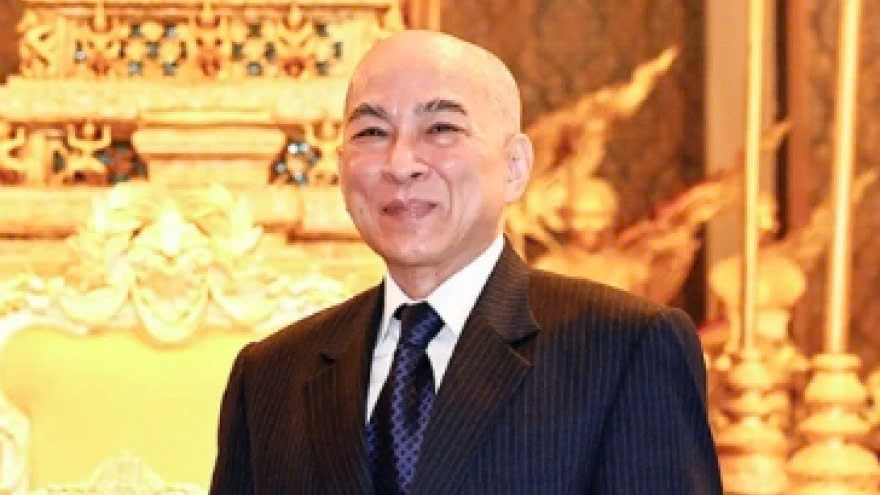Cambodian King Norodom Sihamoni to visit Vietnam this week
VOV.VN - The King of Cambodia, Preah Bat Samdech Preah Boromneat Norodom Sihamoni, will pay a state visit to Vietnam on November 28 – 29 at the invitation of Vietnamese President Luong Cuong.

Vietnam and Cambodia officially established diplomatic relations on June 24, 1967. Notably, in 2005, the leaders of both countries agreed on a new approach to developing bilateral relations, under the motto of good neighbourliness, traditional friendship, comprehensive cooperation, and long-term sustainability.
With this direction, bilateral relations have been continuously strengthened and developed in all areas, bringing practical benefits to the people of both sides and contributing positively to peace, stability, and cooperation in the region and the wider world.
The two sides have signed numerous documents as a foundation for the development of comprehensive cooperation, and regularly carried out visits, meetings, and exchanges between high-level leaders and officials in various forms, even amid the challenges of the COVID-19 pandemic.
Cooperation in defense and security has been continuously strengthened and is becoming increasingly substantial and effective, serving as one of the important pillars in bilateral relations. Both sides consistently affirm that they will not allow any hostile forces to use their territory to harm the security of the other country.
Economic, trade, and investment cooperation is a bright spot in bilateral relations. Currently, Vietnam is Cambodia’s third largest trading partner after China and the United States and the largest trading partner within ASEAN.
Other areas of cooperation, such as education and training, transportation, culture, health care, and telecommunications, are also being actively pursued and expanded.
Every year, Vietnam provides hundreds of long-term scholarships for Cambodian students to study in Vietnam, and the number of Vietnamese students studying in Cambodia is steadily increasing. The two countries also regularly organize cultural and artistic exchange activities, particularly in the border areas.
In addition, both sides coordinate and support each other at multilateral forums, especially at the United Nations, ASEAN, and sub-regional mechanisms.


